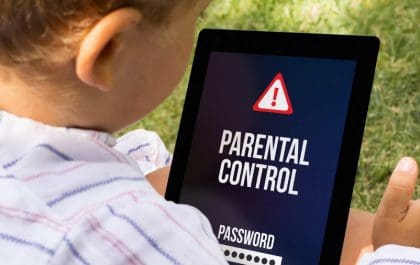In her remarkable book Quiet: The power of introverts in a world that can’t stop talking, Susan Cain describes gifts introverts have to offer along with challenges they face. Some of the gifts include a capacity for deep concentration, good listening/observation skills, and sensitivity to others’ feelings. Some of the challenges include difficulty with overstimulation, hesitancy to try new things, and reluctance to speak in a group setting. One of Cain’s chapters is devoted to effective parenting of introverted children with an emphasis on helping such children develop their full potential and ensuring they don’t get overlooked simply because they are quiet. Cain highlights several issues for parents, including: (1) helping the introverted child cope with school stress; (2) exposing the child to new situations and people; and (3) teaching the child social strategies to help him or her succeed in academic settings.
In order to understand why being at school can be difficult for an introverted child, it is useful to consider one definition of the difference between introverts and extraverts: introverts need time alone to recharge after being with people, while extraverts need time with people to recharge after being alone. Based on this definition, it should be clear that an introverted child could find being surrounded by people at school all day inherently stressful. Parents can help by recognizing their introverted child may need some quiet time and/or a low-stimulation setting after school. Parents can also increase the child’s self-awareness by educating him or her: “Because you are an introvert, you benefit from having some down time to recharge your energies after you have been with people all day at school.”
One of the insights about introverts Cain discusses is that introverts tend to react strongly to new people, places, and events. When an introvert states “I don’t feel comfortable at big parties where I don’t know everyone,” very often the discomfort is due to a reaction to novelty or overstimulation. Unfortunately, some people misinterpret the introvert’s dislike of big parties as antisocial. Cain makes clear that introverts are no more antisocial than extraverts; however, introverts tend to prefer smaller, more intimate gatherings with close friends and may gravitate towards deeper conversations as opposed to “small talk.” The risk for introverted children is that they will avoid trying new things because of their reaction to novelty/overstimulation. Cain recommends that parents aim for a balance between “overprotection and pushing too hard” by ensuring their introverted child is exposed to plenty of new people, places, and situations throughout childhood, but at a pace that is manageable for the child. While doing so, parents can offer empathic statements to their child about the difficulty of trying something new as well as recognition when a child stretches beyond his or her comfort zone.
…by making eye contact, smiling, and standing up straight, the child will appear confident even if he or she is feeling insecure.
According to Cain, many schools are more suited for extraverts than introverts in terms of being noisy, overstimulating environments that require students to participate in large group discussions. Cain identifies characteristics of schools that are more conducive to the learning styles of introverted children, while also recognizing that many families are not in a position to hand-pick their child’s school. Parents can help an introverted child to succeed in a school setting that feels “unnatural” to them by teaching strategies and skills that make social interactions at school more tolerable. Introverts can be coached “to look for comfortable roles within larger groups” such as note-taker or agenda-organizer, and they can benefit from practice at home with “speaking up” in class. Cain suggests parents teach their introverted child how to be a “pretend extravert” to get through challenging social situations: by making eye contact, smiling, and standing up straight, the child will appear confident even if he or she is feeling insecure. The social skill practice and training should be done in a non-judgmental manner so that the introverted child does not feel lacking in any way.
Effective parenting of an introverted child requires sensitivity and awareness on the part of the parent. The rewards of parenting such a child can be immense. As one mother of a “quiet” adolescent girl I know put it, “My daughter may not talk as much as the rest of the family, but when she does speak, I pay attention and I usually learn from her insights.”
Related posts
Newsletter Subscribe
Newest Posts
Set Up a Parental Control for Online Safety
Have you ever wondered how long your children spend in front of a device without your supervision? Yes, it is…
Adopt A Life, Save A Life
By Jeff Ashin, CEO, Young-Williams Animal Center. Photo by: Young-Williams Animal Center Are you or your child thinking of adding…

